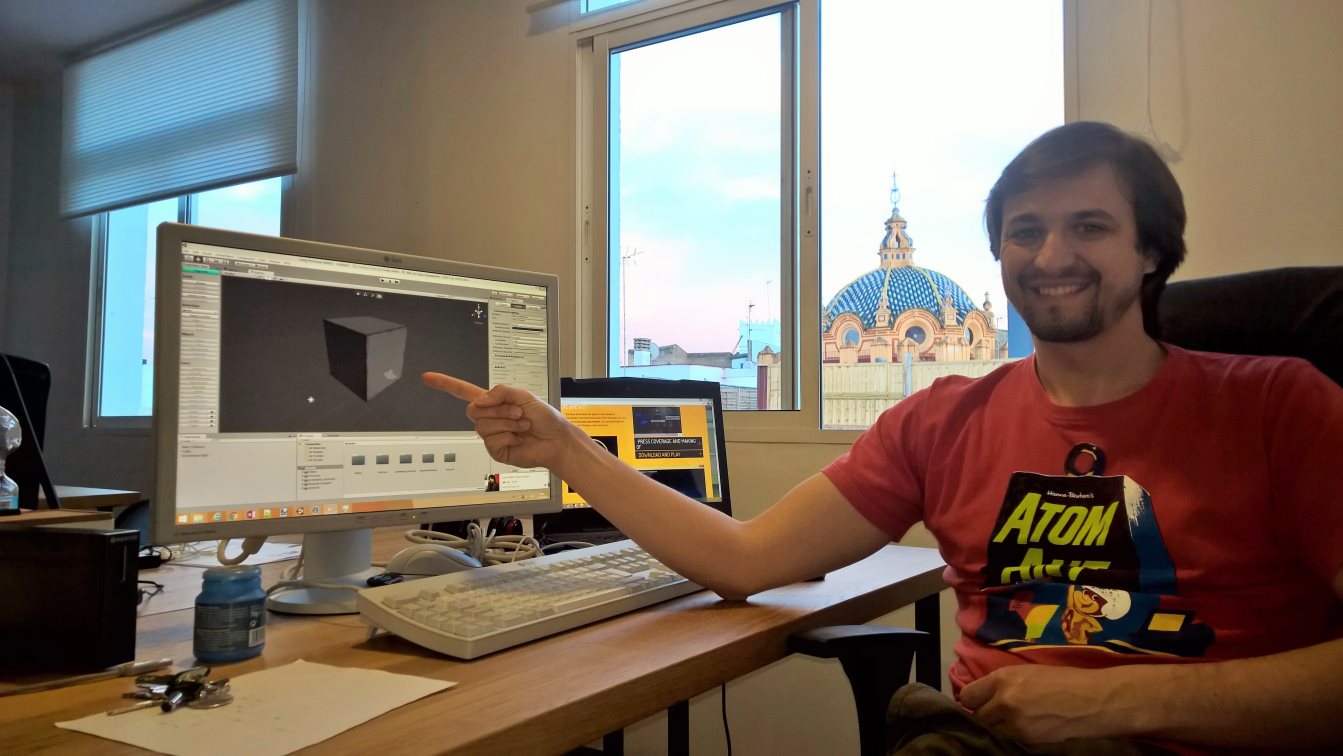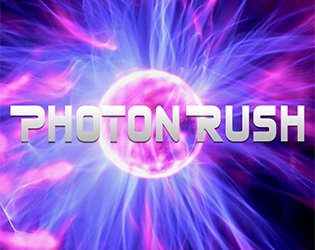Implementing Turing Adventure: First steps
After months of studying and planning, I’ve started building a complete game based on Turing Adventure, the game I developed for the last Adventure Jam, that was awarded with the Colossal Leap Award.

Me yesterday after planting the first «stone» of the new Turing Adventure
It’s been almost a year since that, but I hope that all the preparations that I did will ease the process.
This is what I can tell so far:
It will be released episodically
There will be three episodes. The first one will have a size that I feel confident that I can finish. Hopefully it will serve as an experience builder, so I can correct mistakes that I could fall into, and enhance those features that people enjoy more. Also, I intend to invest the money that I might earn in the following episodes.
Distribution
The interface will be designed for mouse and keyboard but it will be also touch friendly. It will go to all stores that I manage to put the game into. That means the Windows Store for desktop, maybe itch.io, and mobile stores as soon as I figure out the best way to write your inputs in mobile in a nice way (maybe voice recognition). I will apply for Green Light at the same time.
It will be always on
This is something that carry certain stigma for some users, especially after the the Xbox One launch, but there are strong reasons for that:
- First and foremost, because of some license issues related to some software I’m using, I cannot release the chatbot components with the game. But if I keep those component on a server instead of releasing it, there are no such issues.
- I might include a voice recognition system, so you will be able to talk to the game instead of writing. All modern systems nowadays are online services.
Incidentally, this comes with others advantages:
- In order to make the robots react better to human interaction, I need to read conversations with players (with the players’ permission). New learned behavior would be available instantly for all the players.
- Chatbots technologies usually requires a lot of computer power. Not good for mobile platforms or low-end PC’s. Also, all reliable chatbot technologies that I know are server based.
Low poly aesthetics, hand-drawn pictures
I will try to pursue a low poly aesthetic to achieve a modern look that fits with the story. It will feature some hand drawn art to complement the story telling, although how much will depend on how much I will be able to afford.
A small kick-starter?
I don’t like this idea because of the amount of effort that it requires, that would be detracted from the game development effort. But I might need the help of some professionals to finish the game properly, and I might not be able to pay them. A small kick-starter could be a solution for that.
I’m planning the development in three stages:
First, I am building gray levels for the first episode, with some basic interaction, to show the game to friends and colleges and get the most feedback on the story as possible.
Then I will build a complete version of the game but release it as a beta, or any kind of early access. I expect robots of this version to be very stupid, despite of my best efforts, and that the game will be almost unplayable. But I hope to improve this situation in a relative short period of time, thanks to the users’ feedback and conversation logs.
After that, I will upload the first polished version of the game to the stores, where hopes will meet reality 🙂 .


